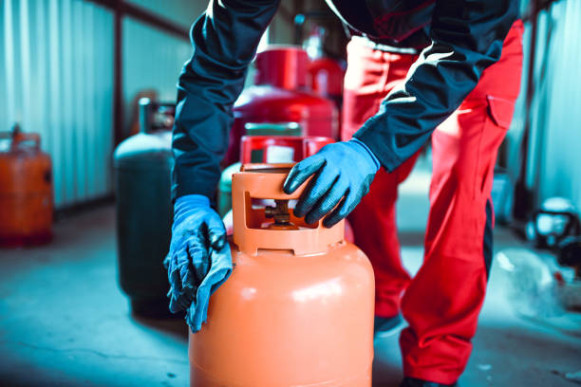- 4221
- 1
Sharing Ideas and Updates on LPG in Nigeria and related information to enable effective collaboration within the LPG Value Chain
Why Cooking Gas Prices Keep Rising

In our September survey, we investigated the prices of LPG (Liquefied Petroleum Gas), commonly referred to as cooking gas, throughout Nigeria. The results reveal a significant spike in LPG prices across different regions of the country, with some areas experiencing prices as high as N1000 per kilogram.
In an interview with Nairametrics, Dan D. Kunle, an expert in natural gas, explained that this increase in cooking gas prices was a foreseeable consequence of the significant upsurge in demand for this essential commodity.
It is worth recalling that in May 2023, President Tinubu made a momentous announcement regarding the removal of petrol subsidies. In response to this development, key stakeholders such as the Nigerian Liquefied Petroleum Gas Association (NLPGA) started advocating for more economical alternatives to empower Nigerians to fuel their generators and vehicles. One prominent suggestion was the transition to Autogas/LPG, which presented a viable and cost-effective option compared to petrol, whose price had markedly risen.
This catalyzed a new wave of demand for LPG, especially for generators that had been converted to run on both petrol and LPG. Mr. Kunle highlighted that a shortage in the production of a highly sought-after product inevitably results in price escalation.
According to him, the surge in LPG prices can be attributed to two primary factors:
Inadequate investments in natural gas exploration within the country.
A significant reduction in the production of associated gas, which is derived from crude oil exploration, due to rampant crude oil theft.
Moreover, Mr. Kunle stressed that the dearth of investments in gas exploration and the pervasive issue of crude oil theft, which directly impacts associated gas production, have prompted the nation to explore an alternative solution—importing Liquefied Petroleum Gas (LPG).
It's essential to note that LPG imports are subject to fluctuations in international prices, encompassing processing costs and shipping expenses (in dollars), all of which collectively influence the final cost borne by consumers. Additionally, Mr. Kunle shed light on a crucial concern: despite Nigeria Liquefied Natural Gas (NLNG) Limited committing to supplying LPG to the country under the Domestic Liquefied Petroleum Gas (DLPG) scheme, there has been a noticeable decline in gas supply volumes to the company in recent times. This decrease in supply can be attributed to various factors within the purview of operators, ultimately hindering the company's ability to produce an adequate volume of gas.
Mr. Kunle further emphasized that Nigeria's inability to meet its goals regarding the availability of Liquefied Petroleum Gas (cooking gas) is not solely due to the challenge of attracting genuine investments in the sub-sector. It is also a consequence of the government's inability to consistently implement policies. As an illustration, he pointed to the Butanization Policy of Nigeria in the 1980s, which has been abandoned by successive governments. This policy, established under the old NNPC, aimed to encourage Nigerians to transition from firewood and charcoal to LPG through depots in various cities and was to be supplied from the refineries in Kaduna, Warri, and Port Harcourt.
Mr. Kunle stated, "We are not doing enough to facilitate the transition from dirty fuels to LPG, and we are not effectively harnessing our gas resources."
Do you think these reasons are enough for the consistent rise in cooking gas prices? Or there are areas left unexplored. Let us know in the comment session below.
















Talabi Deborah
26 January 2024 - 06:28amThe above reasons are enough for the hike in the price of LPG. NLNG has tried their best by allocating 100% of their production to the LPG offtakers.
Apart from the waivers on import duty and VAT on LPG and LPG equipment, if the government do not take necessary steps regarding the devaluation of naira, then we should still expect a continuous increase in price due to the importation of LPG.
Reply